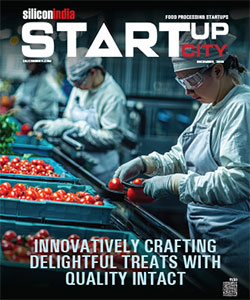The Invisible Backbone of Self-Publishing

Self-publishing has revolutionized the field of publishing. Authors are no longer harnessed to gatekeeping by traditional houses, and with a few clicks, they can publish their work to worldwide audiences. The democratization of publishing is a great story. But behind every published book, especially in self-publishing, there are often unseen contributors whose labor is essential to quality and success.
Editors, translators, sensitivity readers, and designers form the backbone of any professionally produced book, yet in the current environment, particularly in the startup and cost-conscious publishing environments, their functions are often overlooked and undervalued.
When self-publishing itself becomes a sustainable and high quality entirety of an ecosystem, these invisible laborers need to know they are not extras, they are necessities.
Why Editors, Translators, & Sensitivity Readers Deserve the Spotlight in the DIY Era
The crucial roles of editors, translators, designers, and more are often left unknown or too rarely mentioned. Let’s look through their pivotal roles:
Editors: The Co-Architect of the Manuscript
Each persuasive book must have at least one editor, whether developmental, copy, or proofreading. These are professionals to structure; perfect, correct errors and help the author communicate their ideas clearly. In traditional publishing, editing is integrated into the process. In self-publishing, however, it is often seen as expendable. The result? Books with amazing ideas that falls a little short.
Translators: The Worldwide Storytellers
Translators come into the picture as the authors span international borders. However, there is more to literary translation than exchanging words; literary translation is a creative effort that has to keep the nuance, rhythm, and emotional appeal. A translation is like an extra download of a book, a bad one undermines its potential. Yet this work is consistently undervalued and underpaid in the indie world, despite its role in expanding readership and revenue.
Sensitivity Readers: The Ethical Compass
As representation and diversity take the spotlight, sensitivity readers have become a means of ethics. They are tasked with finding stereotyping, inaccuracy or harm in representations of marginalized groups. Their service assists writers to make more real inclusive narratives, and prevent unwitting harm. Nonetheless, they are generally disregarded or misplaced and thought of as censors rather than partners.
Designers: The Early Impressions Calculators
A cover is the key to the success of a book. The effect of interior layout is on readability and accessibility. However, a lot of self-published writers go with do-it-yourself solutions, not because they lack interest, but because they lack access or awareness. Designers, also, like editors, are secretly necessary.
The Traps of Publishing in the Gig Economy
Most self-publishers have since resorted to using freelance sites to offshore these activities, often with small budgets using very little vetting. Although these platforms have such talent, there are no industry standards so when the competition grows it leads to variance in quality and price wars. This cutthroat competition is detrimental to freelancers and writers. Underpaid professionals are not able to continue to practice their profession, and the ensuing inconsistencies destroy confidence in self-publishing as an effective avenue to quality literature.
Will Artificial Intelligence Solve the Void?
Artificial intelligence is already penetrating into such areas as proofreading, translation, even lower level developmental editing. Such tools as ChatGPT, Grammarly, and DeepL may help but cannot substitute human professionalism and judgment as well as cultural and emotional intelligence.
When well applied, AI has the capability of amplifying human creativity. However, where it is used to directly replace it to reduce costs, the outcome usually tends to create poor content, lacking appeal, or being either generic or even offensive.
Valuing Invisible Labor: The Importance of Fair Compensation
The critical thing here is that editors, translators, sensitivity readers and designers deserve to be compensated fairly, not as a matter of ethics but as an investment into quality. Underpaying such contributors poses a risk of burnout, a talent drain and eventually a compromise to the success of the book.
Transparency and equal pay are aims that startups and self-publishing services must promote, and rewards for this important labor recognize skill, time, and knowledge application.
What Startups & Platforms Can Do Differently
For the self-publishing industry to thrive, platforms and startups have to transform the way in which they regard and accommodate such partners. Innovation in publishing tools and distribution cannot be the sole focus of the next generation of self-publishing platforms. Startups must adopt a culture that gives priority to cooperation, artisanship, and professionalism in all the various phases of the publishing industry. The part of their mission should be to educate the authors about the necessity of collaborating with competent partners. Most authors are just unaware of what these professionals do, where and how to reach them and the importance of them. Startups should avail that knowledge.
Along with the education, startups must control reliable platforms that have access to quality editorial, translation, and design services. Giving frontage or internal job opportunities can eliminate the guessing game among the authors. In addition, startups ought to encompass moral pricing patterns highlighting dexterity, time and experience to accomplish good piecework. This is beneficial to freelancers, given that it helps them maintain a steady level of service and improve the reputation of the whole platform.
Finally, startups can also take into consideration bundled services. Packaging editing, design and translation together, startups are in a position to offer a full package at more reasonable rates and still compensate the contributors fairly. These packages promote an integrated approach to publishing and help authors to invest without getting exhausted in quality.
Author Tips: Do Not Forget about the Invisible Work
When self-publishing, it is imperative to acknowledge those people who help turn a manuscript into a finished book.
Begin the process by estimating professional assistance costs as early as possible, including editing, design, translation, and sensitivity reading, all of which are essential procedures for a high-quality final product. Authors should spend some time to connect with editors, cover artists, and sensitivity readers, reviewing their portfolios, their testimonials, and requesting any samples of their work to evaluate fit. Keep in mind that they are not merely contractors, but also partners in the creative process. This requires open communication, respect to their knowledge, and working with them at all stages.
Lastly, authors should always acknowledge the contributions of these professionals publicly. Giving credit in the book’s acknowledgments, in marketing materials and on online platforms ensures that these invisible workers are recognized for their vital roles.
Book publishing may be easier than before, but writing a book alone doesn’t make it ready for the world.
Final Thought
The emergence of self-publishing is a revolution of creativity, bringing to life stories that traditional systems might never touch. The opportunity now lies with authors and startups to build on that foundation with integrity, collaboration, and quality. True democratization of publishing means valuing every contributor who shapes a book, not just the person whose name appears on the cover.
Read More News :
PhonePe Taps Global Investment Banks Ahead of $1.5 Billion IPO
Vaidam Health Acquires MediJourney to Boost Global Medical Tourism Play

.jpg)

